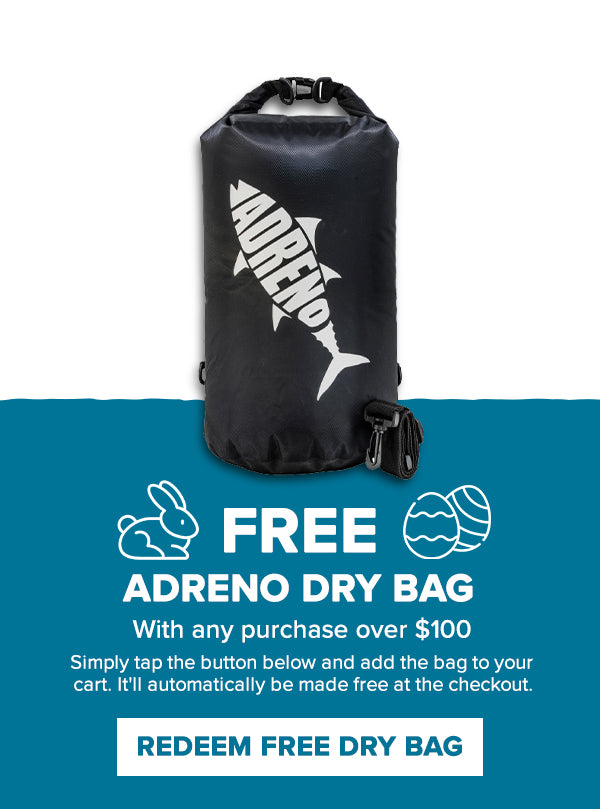How To Catch Eastern Rock Lobster In Sydney
June 16, 2021 3 min read

In this new blog of the AdrenoSydney Spearfishing series, we're going to take a look at the Eastern Rock Lobster. They are one of the tastiest critters in the ocean and can be found right here in Sydney.
Where to find lobsters?
Generally, crays can be found in really shallow water. Don't be afraid to check ankle-deep water. Ideally, you want to go on a high tide with a low swell, so you can get right up in those shallows and not get tossed around in the wash. These spots are naturally protected by rough weather, so going when it's calm is going to help.
However, this doesn't mean you won't find lobsters in deeper water. You can still find them up to 10 meters. Any rocky areas with kanji or kelp is a really good place to start.
What equipment do you need in catching lobsters?
Fishing Gloves
For the equipment, you need to have a good pair of gloves. The crays themselves are really spiky. They also have nasty spines on their tail that they can smash your hand against their body with. In addition to that, sea urchins, barnacles and the caves are just full of nasty stuff that can wound you.
Wetsuit
A goodwetsuitis highly recommended to stop you from getting cut on the reef, especially when you're hunting in that shallow water and you get tumbled around. Try to get one with a hood, because eventually, you are going to bump your head and you'll be very thankful to have that layer of neoprene between your scalp and the cave.
Crays are found in the winter months, so unless you have a really good spot or serious layer of blubber, you're going to need a wetsuit to keep you warm during your dive.
Dive Torch
A good dive torch, whilst not 100% necessary, will greatly increase your chances of finding cray hidden at the back of a dark cave. Just be aware that it is illegal to spearfish with a torch inNew South Wales, so either leave the gun at home or if you're in a boat, swap it out when you look for crays.
Cray Bag
Another handy item is a cray bag. Whilst you can just use your standard mesh keeper net, you also can't go past the waist-mounted mesh bag. This gives you the use of both of your hands making it easy to put crays in. You can also store a spare torch or even a cray measure in there.
Cray Measuring Tool
It's also really important to carry a current New South Wales cray measuring tool. You can find these in most tackle shops, but just check the regulations in your local areas as the size limit does change from time to time.
Remember Their Location
It's really important to try and remember where you find your crays because you'll often find they'll go back to that same hole time and time again. Once you know your spots pretty well, you might want to try night diving. It'll give you the opportunity to see the ocean in a whole new light. You'll often find crays out of their holes rather than hiding during the day.
Night diving is going to come with its own set of risks. You want to know the area really well and have a backup entry and exit point that you can see clearly in the dark. It’s recommended to go with a dive buddy and a spare torch so you won't go astray.
Practice Teamwork
Like all spearfishing, teamwork is greatly going to increase your chances and safety. Work together to cover as much ground as possible. Once you find a few crays, call your mate over for backup. It's always good to spot your mate just in case they get stuck when pulling a cray out of a hole. It's also really handy to have an extra set of eyes in case the cray bolts out the back.
Crays will generally not swim far and they'll hide in the nearest cave or kelp. Some caves will have a back exit. It's always handy to have one diver waiting at it whilst the other spooks it from the other side. Just be aware, there is also amaximum size to protect the breeders.


